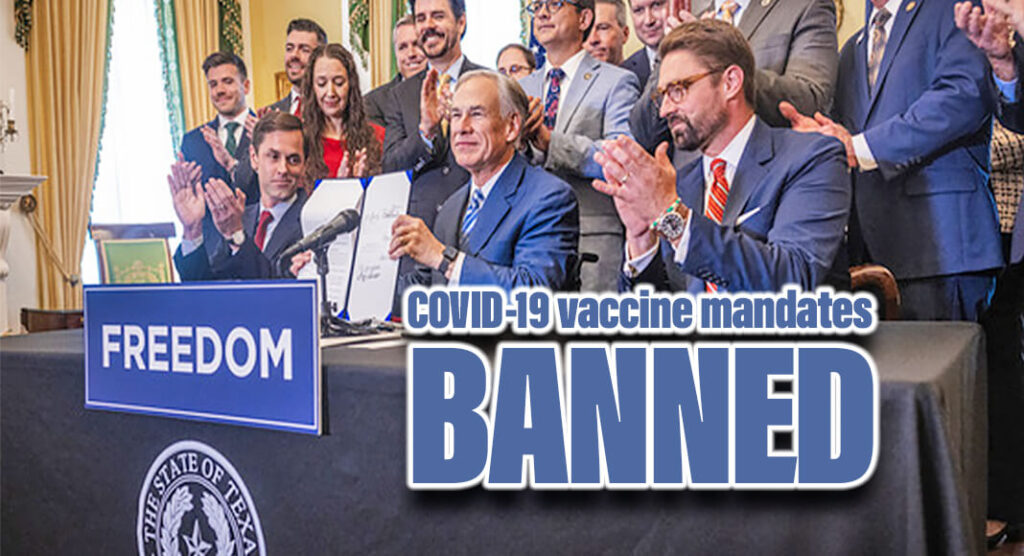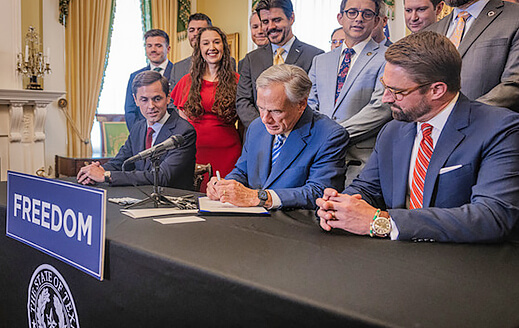
Mega Doctor News
AUSTIN, Texas – Governor Greg Abbott today signed a law banning COVID-19 vaccine mandates by private employers passed during Special Session #3 of the 88th Legislature at the Governor’s Mansion in Austin. This new law protects the personal healthcare choices and livelihoods of Texans by prohibiting private employers from requiring employees or contractors receive a COVID-19 vaccination as a condition of employment.
Earlier this year, Governor Abbott signed a similar law prohibiting any government in Texas from imposing COVID-19 vaccine mandates.
The Governor was joined at the bill signing ceremony by Senators Bob Hall and Mayes Middleton; Representatives Brad Buckley, Briscoe Cain, Cody Harris, Brian Harrison, Cole Hefner, Jeff Leach, Nate Schatzline, Mike Schofield, Steve Toth, and Cody Vasut; and other healthcare freedom advocates.

Senate Bill 7 (Middleton/Leach) prohibits private employers from requiring employees and contractors receive a COVID-19 vaccination as a condition of employment. The bill allows the Texas Workforce Commission to investigate complaints by employees, contractors, or prospective employees or contractors alleging their employer or perspective employer has taken adverse action against them for not receiving a COVID-19 vaccine.
“Senate Bill 7 prohibits private employers from requiring employees to get a COVID vaccination—and employers that violate this law are subject to a $50,000 fine as well as a lawsuit and injunctive relief from the Texas Attorney General,” said Governor Abbott. “This law adds to the law that I already signed that prohibits state and local governments from imposing COVID mandates. It’s long past time to put COVID behind us and restore individual freedom to all Texans. I thank Senator Middleton, Representative Leach, and all other members of the Texas Legislature who stood with this issue every step of the way.”








